 January 30, 2020 John E. Ross, KD8IDJ, Editor
| ||||||
ARRL to Argue for Continued Access to 3 GHz Spectrum as FCC Sets Comment Deadlines At its annual meeting on January 17 - 18, the ARRL Board of Directors instructed Washington Counsel Dave Siddall, K3ZJ, to prepare a strong response to protect amateur access to spectrum in the 3 GHz range. In its Notice of Proposed Rulemaking (NPRM) in WT Docket 19-348, the FCC proposed to relocate all non-federal operations, including amateur uses, to spectrum outside the 3.3 - 3.55 GHz band.
The Commission anticipates auctioning this spectrum to expand commercial use of 5G cellular and wireless broadband services, if agreement can be reached on relocation of -- or sharing with -- the federal incumbents that operate in the same band. Publication of the NPRM in the Federal Register on January 22 established deadlines of February 21 for comments and March 23 for reply comments. The FCC has requested comment on the uses radio amateurs make of the spectrum and appropriate relocation options. Complicating matters is the fact that radio amateurs must consider the possibility that the immediately adjacent 3.1 - 3.3 GHz band is included in the spectrum that Congress has identified for similar study. FCC Commissioner Michael O'Rielly, in a December statement, referenced the fact that the lower band may also be considered for non-federal reallocation, potentially limiting relocation possibilities. Amateurs make substantial use of the 3.3 - 3.5 GHz band that would be hard to replicate elsewhere, and they had filed more than 150 comments before the designated comment period even began. Among users looking at options are those who use this spectrum for Earth-Moon-Earth (moonbounce) communication, mesh networks, experiments with communication over long distances, radiosport, and amateur television. A portion of the band is also designated for use by amateur satellites in ITU Regions 2 and 3 (the Americas and Asia/Pacific). A report is due by March 23 from the National Telecommunications and Information Administration (NTIA) evaluating the feasibility of having federal users share all or part of the 3.1 - 3.55 GHz band with commercial wireless services. This report is required by the Making Opportunities for Broadband Investment and Limiting Excessive and Needless Obstacles to Wireless (MOBILE NOW) Act. The results of the NTIA report will impact how much spectrum ultimately may be re-allocated for auction to wireless providers. ARRL urges amateurs who comment to inform the FCC about the uses they make of the 3 GHz spectrum. Short comments and longer statements may be filed electronically. Visit the FCC "How to Comment on FCC Proceedings" page for more information. Commenters should reference WT Docket 19-348. ARRL Expands Its Roster of Online Discussion Groups ARRL's Committee on Communication with Members has launched three new online discussion forums as part of its ongoing efforts to enhance and improve communication between ARRL leadership and members or prospective members. The new forums, which focus on The committee launched the three new discussion groups on the basis of requests from the amateur radio community, to support ARRL's efforts to provide more resources for beginner-to-intermediate operators. The online discussion program launched last fall with three forums -- contesting, awards, and the International Amateur Radio Union (IARU) -- all open to the amateur radio community. The program was based on the success of the online ARRL-LoTW Group, which, for the past several years, has served to answer questions and generate discussions about ways to improve the service.
ARRL IT Manager Michael Keane, K1MK, worked with Groups.io to set up the new groups. Those wishing to subscribe must use a Groups.io username and password, if they have one, or create a Groups.io account if they don't. The new groups join an ARRL discussion forum lineup that already includes:
Everyone who subscribes to an ARRL Group is automatically subscribed to "ARRL Groups," an administrative feature that allows ARRL to convey routine announcements to subscribers of all ARRL groups, such as planned system outages. ARRL expects to create additional online groups that focus on other areas of interest to radio amateurs, including ARRL activities, services, initiatives, and policies. ARRL currently hosts some "members-only" online forums that include All questions will be welcome, no matter how many times they have already been asked and answered, or how obvious the answers might be. Neither personal attacks nor foul language will be tolerated. Violators will immediately be placed on "moderated" status, meaning their subsequent posts will require Moderator approval. Civility and courtesy are expected, even when disagreeing. The Committee believes that providing more opportunities for two-way discussion between the organization's leaders and the entire ham radio community will assist ARRL in truly serving the needs of this community. -- Thanks to ARRL Communications Manager Dave Isgur, N1RSN Yukon's VY1JA Plans to Be Back for 2020 ARRL November Sweepstakes CW ARRL November Sweepstakes stalwart J. Allen, VY1JA, in Canada's Yukon Territory, may not be off the air quite yet. Allen announced his retirement from ham radio last November, but now says he plans to keep a small station on the air "for as long as possible," leaving one antenna tower in place. Allen told ARRL earlier this month that there's For the past few years, the remotely operated VY1AAA, using equipment and antennas located at VY1JA, has been among the precious few stations handing out the Northern Territories multiplier in Sweepstakes. Gerry Hull, W1VE/VE1RM, told ARRL that the remote equipment and high-power amplifier have now been removed, along with the radio gear and antennas from Allen's larger station, which will be sold. Allen, who has been diagnosed with Alzheimer's disease, says his current medication has stabilized his condition, but he's been looking ahead to the day when his wife, Ann, would face the task of dismantling and disposing of his station equipment and antennas. "Because I am concerned about what I will be like in a few years or so, I wanted to sell out the station completely so that Ann would not have a big problem on her hands removing poles, towers, cables, gear, and so on," he explained. Allen thanked Hull; Cary Rubenfeld, VE4EA; Chuck Cullian, K0RF, and Tyson Schulz, VY1SLZ, for their assistance. Rubenfeld is handling the sale of Allen's gear, while Schulz has pledged to assist in dismantling and disposing of Allen's scaled-down station when the time comes. Cullian has provided a transceiver for Allen, who no longer had an operational radio on site. "It means that, for as long as I remain functional, I intend to keep VY1JA on the air, and especially to be there for as many ARRL Sweepstakes as possible," Allen said. Hull said he and others involved with the VY1AAA remote operations have been looking for a new home for the VY1AAA remote gear and radio. The K7RA Solar Update Tad Cook, K7RA, Seattle, reports: This week, we finally saw the return of sunspots over 6 of the last 7 days, January 24 - 29. The average daily sunspot number rose from 0 to 11.1, while average daily solar flux jumped from 71.2 to 72.9. Geomagnetic indicators remained very quiet, signaling continued great conditions on 160 and 80 meters. Predicted solar flux over the next month and a half is 74 on January 30 - February 2; 70 on February 3 - 6; 71 on February 7 - 13; 72 on February 14 - 20; 73 on February 21 - 22; 74 on February 23 - 29; 72 on March 1 - 3; 71 on March 4 - 11, and 72 on March 12 - 14. Predicted planetary A index is 8 on January 30; 5 on January 31 - February 24; 10 on February 25 - 26; 5 on February 27 - 29; 8 on March 1 - 3, and 5 on March 4 - 14.
Sunspot numbers for January 23 - 29 were 0, 12, 14, 18, 12, 11, and 11, with a mean of 11.1. The 10.7-centimeter flux was 70.8, 71, 72.7, 74.7, 72.9, 74.2, and 74.3, with a mean of 72.9. Estimated planetary A indices were 5, 3, 3, 4, 3, 5, and 9, with a mean of 4.6. Middle latitude A index was 3, 1, 3, 2, 2, 4, and 6, with a mean of 3. A comprehensive K7RA Solar Update is posted Fridays on the ARRL website. For more information concerning radio propagation, visit the ARRL Technical Information Service, read "What the Numbers Mean...," and check out K9LA's Propagation Page. A propagation bulletin archive is available. Monthly charts offer propagation projections between the US and a dozen DX locations. Share your reports and observations. Just Ahead in Radiosport
See the ARRL Contest Calendar for more information. For in-depth reporting on amateur radio contesting, subscribe to The ARRL Contest Update via your ARRL member profile email preferences. New Amateur Extra-Class Question Pool Released The new Amateur Extra-class license examination question pool, effective from July 1, 2020, through June 30, 2024, has been released and is available at the National Conference of Volunteer Coordinators (NCVEC) website.
In addition, an effort was made to balance the difficulty level, removing or replacing some questions deemed too easy or too difficult compared to the rest of the pool. The 2020 pool has 10 diagrams, which have been renumbered because the new question pool has two fewer than the 2016 question pool. HuskySat-1 With VHF/UHF Linear Transponder Set to Deploy Soon The University of Washington's HuskySat-1 3U CubeSat, launched November 2, 2019, is set to deploy on January 31 after the vehicle that carried it to the International Space Station undocks. HuskySat-1 has remained stowed aboard a Northrop Grumman Cygnus supply vehicle. Within 24 hours after Cygnus' departure from the ISS, HuskySat-1 and SwampSat 2 will be deployed into orbit.
After deployment, HuskySat-1's 1,200 bps BPSK beacon on 435.800 MHz should be active and decodable with the latest release of AMSAT's FoxTelem software. HuskySat-1 is expected to carry out its primary mission before being turned over to AMSAT for amateur radio operation. HuskySat-1 features a 30 kHz wide V/U linear transponder for SSB and CW. The uplink passband will be 145.910 - 145.940 MHz LSB/CW. The downlink passband will be 435.840 - 435.810 MHz USB/CW (inverting). Telemetry will be transmitted on 435.800 MHz, 1k2 bps BPSK with an experimental downlink at 24.049 GHz. The "Fox-in-a-Box" FoxTelem software has been updated for HuskySat-1 operation at its download website. The new release now contains the SD card image, FIAB-distro8-V1.08w.zip. This file, when unzipped and written to a 16 GB SD card, will provide the latest software for FoxTelem and will run on a Raspberry Pi 4. The 1.08 versions can switch bands between listening on VHF and UHF, based on which Fox and Husky satellites are overhead at the time. The linear transponder and telemetry system carried aboard AMSAT's Fox-1E was designed for use in different CubeSats merely by adding an interface adapter for connection to the host bus. Noting the prevalence of CubeSats built and launched by universities and other organizations, AMSAT adopted a goal of "amateur radio in every CubeSat." Additional information is posted on the University of Washington Husky Satellite Lab site. -- Thanks to AMSAT News Service via the HuskySat-1 Team, AMSAT Engineering, AMSAT Operations, the Fox Telemetry Team, and NASA State QSO Party Challenge Announced The State QSO Party Challenge is a competition comprised of other contests, namely state and provincial QSO parties. As explained on the website, the annual cumulative score program is open to any radio amateur who participates in any approved state QSO parties (SQPs). Participants just need to submit their QSO party scores to 3830scores.com to enter the challenge. Participants' cumulative scores will be calculated by totaling up the number of reported contacts and multiplying by the number of SQPs "Using the number of QSO parties entered as a multiplier is expected to encourage radio amateurs to enter more state/province QSO parties," the program's organizers said. "The first SQPs in 2020 are the Vermont, Minnesota, and British Columbia QSO Parties in the first weekend of February." Entrants must make at least two contacts in a QSO party for it to count as a multiplier. The full details are available on the State QSO Party Challenge website. Challenge sponsors expressed appreciation to Bruce Horn, WA7BNM, for developing the SQP Activity Tracker on 3830scores.com. Iowa State Parks on the Air 2020 Celebrates Centennial of Iowa State Parks Iowa State Parks on the Air (IASPOTA-2020) is under way and will continue through year's end. The event is sponsored by the Great River Amateur Radio Club, with the support of Iowa ARRL Section Manager Lelia Garner, WA0UIG, and the Iowa Division of According to Colin Wheatley, W9UPK, Iowa had the first state park system in the nation, and Iowa's first state park, Backbone State Park, was dedicated in 1920. Since then, the state park system has grown to some 70 parks and recreational facilities, including 63 state parks. Stations logging contacts with five of Iowa's state parks during the year-long celebration can request a certificate by sending a legal-size self-addressed, sealed envelope to IASPOTA-2020 c/o Great River Amateur Radio Club, P.O. Box 1384, Dubuque, IA 52004. YOTA Camp 2020 in the Americas Donations Are Being Matched Youth on the Air (YOTA) 2020 Camp Director Neil Rapp, WB9VPG, has announced that, thanks to a generous radio amateur, a matching fund drive is in progress through the end of February to help fund the 2020 YOTA Camp, June 21 - 26 at the National Voice of America Museum of Broadcasting in West Chester, Ohio. "From now until the end of February, every dollar donated to the Youth Donations may be made via PayPal, GoFundMe, or a check. Rapp said donations could make it possible to increase the number of campers from 20 to 30 to better meet demand. "Our corporate and foundation sponsors have raised most of the funds, but we need clubs and individuals to finish the job," he explained. Rapp is an alumnus of the ARRL Teachers Institute on Wireless Technology TI-1 and TI-2 courses. Past ARRL Southeastern Division Director H. Dale Strieter, W4QM, SK Past ARRL Southeastern Division Director Dale Strieter, W4QM (ex-W4DQS), of Cocoa Beach, died on January 6. An ARRL Life Member, he was 92 and a founding member of the Maxim Society. During World War II, he served as a US Maritime Service radio officer in the Pacific. After the war, he received a BS in electrical engineering from Michigan State. He got his amateur radio license in 1947. Strieter later earned an MSEE from Michigan State, and then worked as an audio engineer. In 1958, Strieter moved to Cocoa Beach to work for General Electric, was a NASA contractor, and he served as the guidance engineer on the Mercury and Gemini manned spaceflight missions. Strieter was a prolific DXpeditioner. After 20 years with GE, he returned to sea in 1979 as a radio officer in the US Merchant Marine on a ship generally anchored at the Chagos Islands. As VQ9QM, Strieter logged more than 200,000 contacts from nearby Diego Garcia Island, between 1986 and 2001. He retired in 2002. -- Thanks to Tom Tenney, W8OJM, and Don Karvonen, K8MFO In Brief...
Dayton Hamvention 2020 Web Portal Opens for Tickets, Exhibit Space Online orders for Dayton Hamvention® 2020 tickets, inside exhibit spaces, and flea market spots can now be placed online. Those who ordered online in 2019 should have their user IDs and passwords available when placing orders. Hamvention's all-volunteer staff will work as quickly as possible to respond to orders. If you encounter difficulties, email the appropriate committee: Tickets, Inside Exhibits, or Flea Market. Hamvention announced in December that it would be increasing the cost of admission and its booth fees. General admission is now $26 in advance or $31 at the gate for all 3 days. The cost of flea market spots has risen by $5 per space, and inside exhibitors will pay $30. Hamvention 2020 takes place May 15 - 17 at the Greene County Fairgrounds and Exhibition Center, 210 Fairground Road, Xenia, Ohio.
Upcoming ARRL Section, State, and Division Conventions
Find conventions and hamfests in your area.
. .
Subscribe to...
Free of charge to ARRL members...
| ||||||
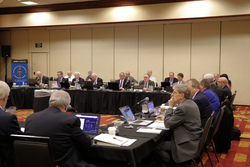
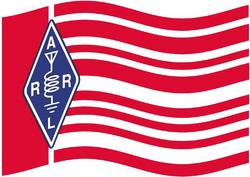 antenna law, regulatory issues, and support for new amateur radio licensees, will go live on Thursday, January 30, at 0400 UTC.
antenna law, regulatory issues, and support for new amateur radio licensees, will go live on Thursday, January 30, at 0400 UTC.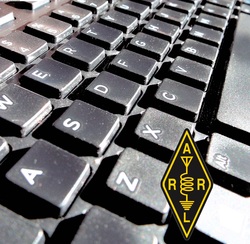 the topics of Awards and Contesting. While these forums will continue to operate, participants are being encouraged to post new topics in the new groups.
the topics of Awards and Contesting. While these forums will continue to operate, participants are being encouraged to post new topics in the new groups.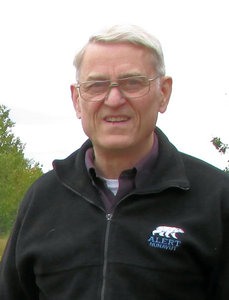 a "strong likelihood" he'll return for the 2020 ARRL November Sweepstakes CW in the Low Power category, using his own call sign.
a "strong likelihood" he'll return for the 2020 ARRL November Sweepstakes CW in the Low Power category, using his own call sign.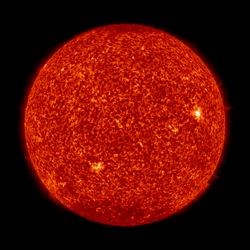 On January 27, the total sunspot area was 100 millionth of the visible solar disc. The total sunspot area hasn't been larger or even near that size since May 18, 2019, when the area was 140 millionth of the visible solar disk.
On January 27, the total sunspot area was 100 millionth of the visible solar disc. The total sunspot area hasn't been larger or even near that size since May 18, 2019, when the area was 140 millionth of the visible solar disk. The
The .JPG)
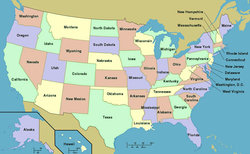 entered in the year to date. Periodic standings will be posted to
entered in the year to date. Periodic standings will be posted to .jpg) Natural Resources (DNR).
Natural Resources (DNR).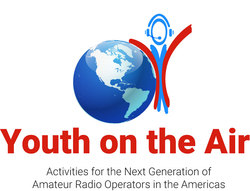 on the Air Camp will be matched by Steve McGrane, KM9G, up to a total of $4,000," Rapp said. "Your donations in support of this unique opportunity for youth to share ham radio with their peers will count double until the end of February."
on the Air Camp will be matched by Steve McGrane, KM9G, up to a total of $4,000," Rapp said. "Your donations in support of this unique opportunity for youth to share ham radio with their peers will count double until the end of February."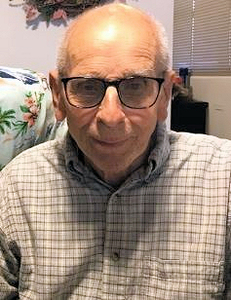 Strieter was ARRL Southeastern Division Director from 1970 until 1973.
Strieter was ARRL Southeastern Division Director from 1970 until 1973.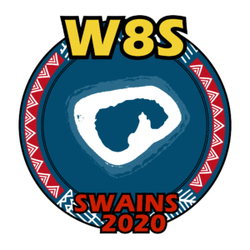 The
The 
 The
The 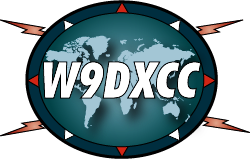 The location of the
The location of the 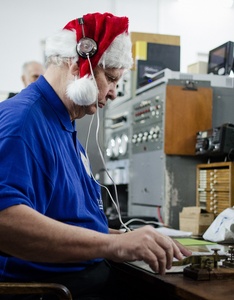 The Alexanderson alternator 2019 Christmas Eve transmission on 17.2 kHz from SAQ in Grimeton, Sweden, was heard by more than 400 listeners. SAQ
The Alexanderson alternator 2019 Christmas Eve transmission on 17.2 kHz from SAQ in Grimeton, Sweden, was heard by more than 400 listeners. SAQ 







